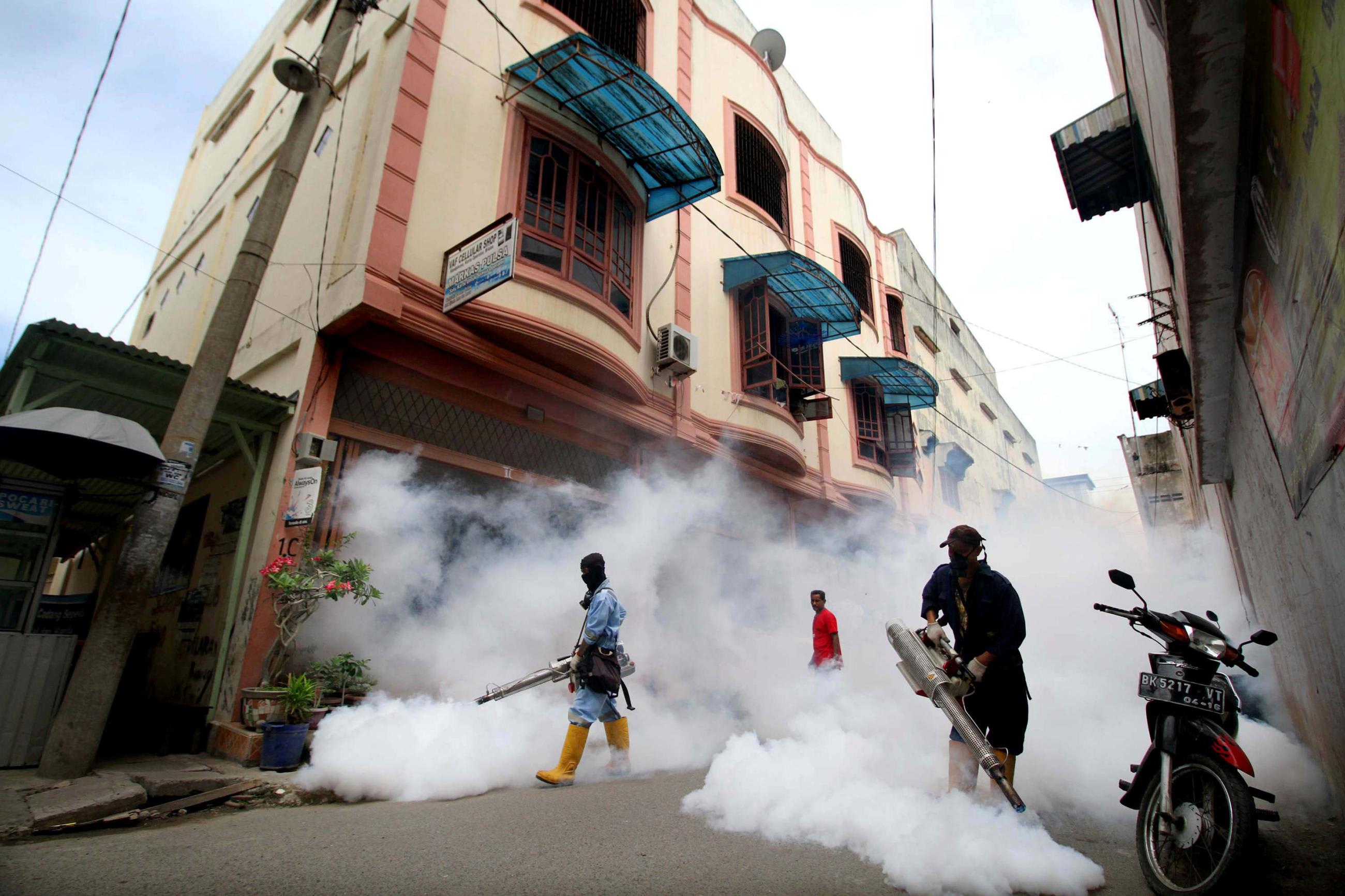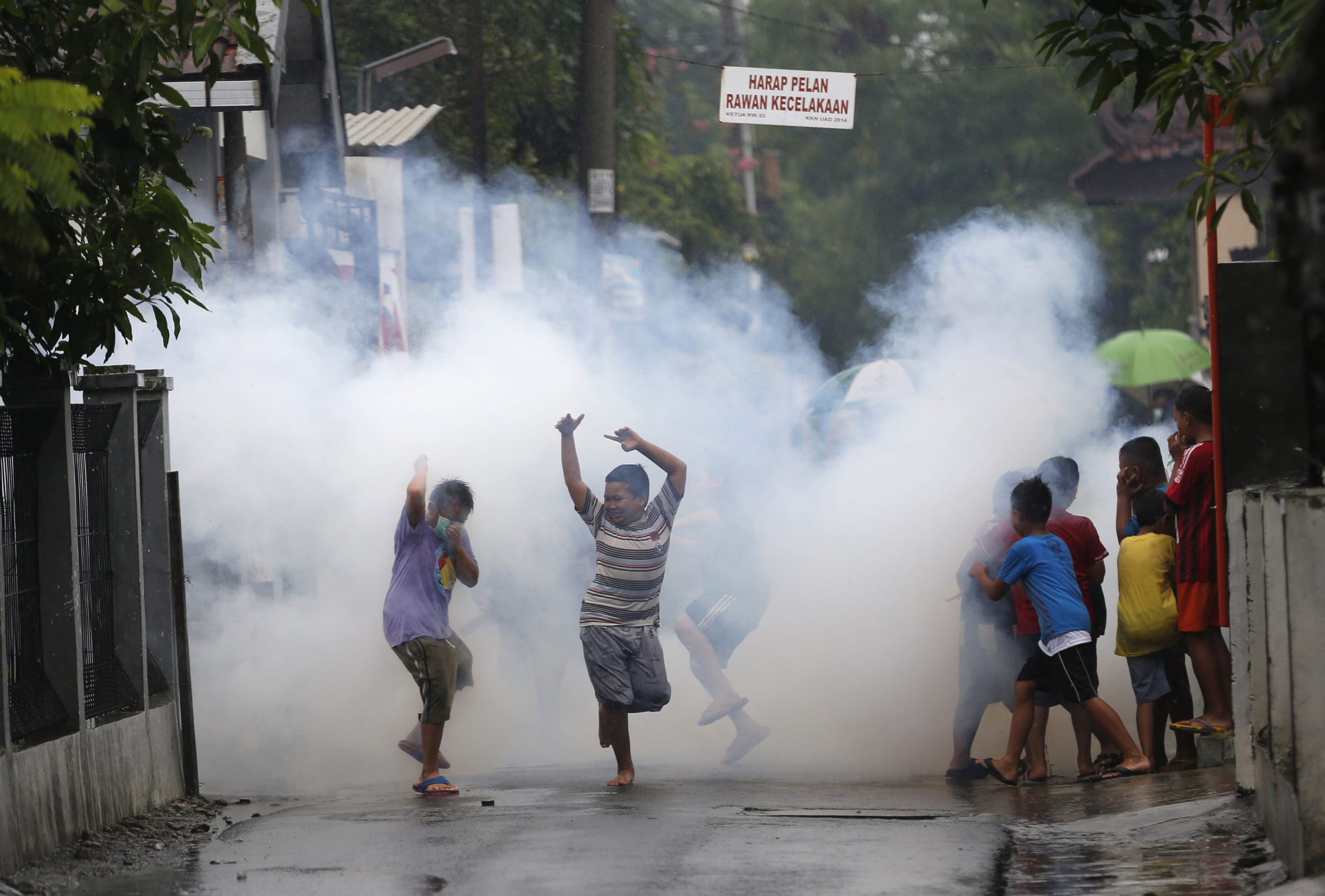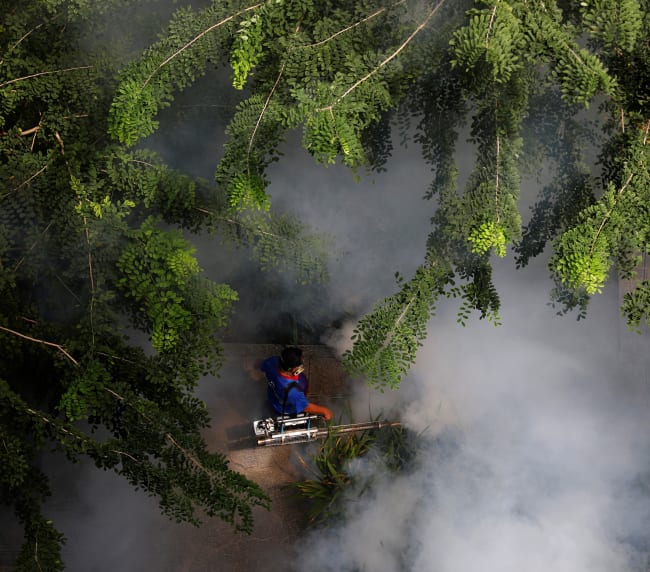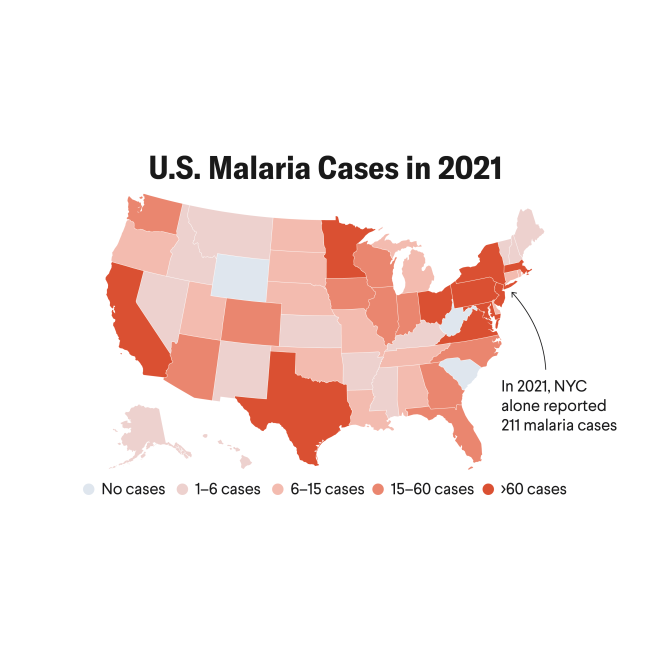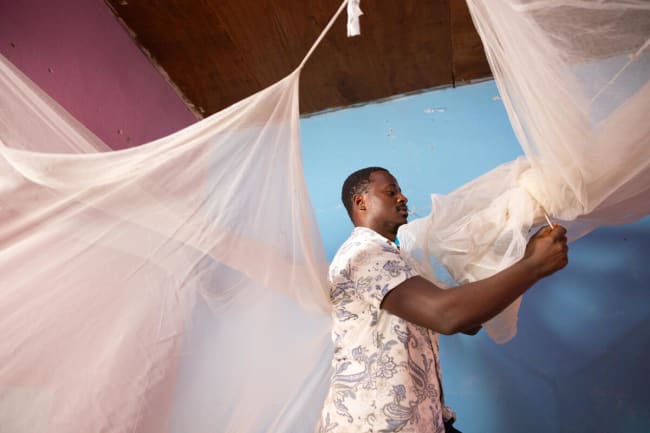During May's seventy-eighth World Health Assembly, Indonesia officially joined the World Health Organization (WHO) Western Pacific Region, marking a significant reorientation in its global health diplomacy. Previously, it had belonged to the South-East Asia Region [PDF], which includes India, the Maldives, Sri Lanka, Thailand, and Timor-Leste.
This move comes as Indonesia ramps up its efforts to fight mosquito-borne illness. Like other Western Pacific Region countries—including China, Papua New Guinea, and Vietnam—Indonesia needs to address health issues associated with aging populations and urbanization as well as persistent communicable threats such as mosquito-borne illnesses.
Malaria remains endemic in parts of Indonesia, particularly in its province of Papua, which accounts for approximately 93% of the country's total burden. Although more than 75% of its districts and 85% of its population have achieved malaria-free status, Papua's high burden is a hurdle in achieving national and regional elimination.
Part of the difficulties in eradicating malaria in Papua stem from the province splitting governance of New Guinea Island with the country of Papua New Guinea. Papua also has limited human resources, mountainous terrain, inadequate transport facilities, inconsistent program implementation due to a lack of interdistrict coordination, and financial constraints that lead to poor infrastructure and access challenge malaria interventions in this region.
By joining the Western Pacific Region, Indonesia can strengthen its alliances with Papua New Guinea and countries with a high mosquito-borne illness burden and accelerate its progress on eradicating malaria.
Global Solidarity and Regional Cooperation
After moving to the Western Pacific Region, Indonesia established a bilateral joint action plan with Papua New Guinea to enhance cross-border collaboration and ensure that both countries align their efforts in tackling malaria. This plan was unveiled at the ninth Asia Pacific Leaders' Malaria Alliance Summit, when Indonesia also launched Indonesia's Call to End Malaria Initiative. That initiative aims to improve multilevel coordination—particularly in complex regions such as Papua—by aligning national, provincial, and district strategies.
Papua accounts for approximately 93% of Indonesia's total malaria burden
Alongside those plans, Indonesia is creating opportunities for a shared learning and collaboration with countries that have faced or are currently facing similar health challenges. China—a member of the Western Pacific Region—successfully implemented its National Malaria Elimination Action Plan in 2010 and was declared malaria free in 2021.
As part of this strategy, China uses artemisinin, a product of integrated traditional medicine derived from Artemisia annua, a Chinese medical plant, to target Anopheles mosquitoes—the vectors that transmit malaria to humans. Given that many people in Indonesia believe in and practice traditional medicine, China's experience could provide a valuable model for Indonesia to learn from and implement its own malaria efforts, such as the use of artemisinin, how to advocate for the medicine, and how to ensure uptake until it significantly eliminates malaria in Indonesia.
Vietnam's progress toward eliminating malaria could also provide valuable lessons for Indonesia. From 2019 to 2024, malaria cases in Vietnam dropped more than 90%—from approximately 4,600 to 353. With support from donors and partners such as the World Health Organization, Vietnam was able both to use health-care workers to reach people in remote areas who are at risk of malaria and to introduce community health workers to ensure education, communication, and adherence to treatment. Those methods accounted for local characteristics and increased accessibility of health services in remote areas.
One of Vietnam's districts, Lai Chau, was able to reduce malaria cases by 83%, from 93 in 2023 to 16 in 2024. This success can be attributed to Vietnam's sustainable strategies that include its 1-3-7 strategy, under which new malaria cases are reported within one day, investigated within three, and addressed within seven. Vietnam's integrated health system also connects national-level strategies with research and health education efforts. These strategies attracted donors such as The Global Fund, the largest external donor of malaria activities in Vietnam.
Now, with no malaria deaths reported in 2024 and 48 provinces declared malaria free, the country is close to achieving nationwide elimination by 2030.
By strengthening its collaboration with Papua New Guinea, learning from China and Vietnam, and adopting Western Pacific Region best practices, Indonesia is similarly working to end malaria in the nation by 2030. Indonesia's decision to join the Western Pacific Region is more than realignment—it signals the country's readiness to adopt innovative public health governance and proven strategies to tackle health challenges.
